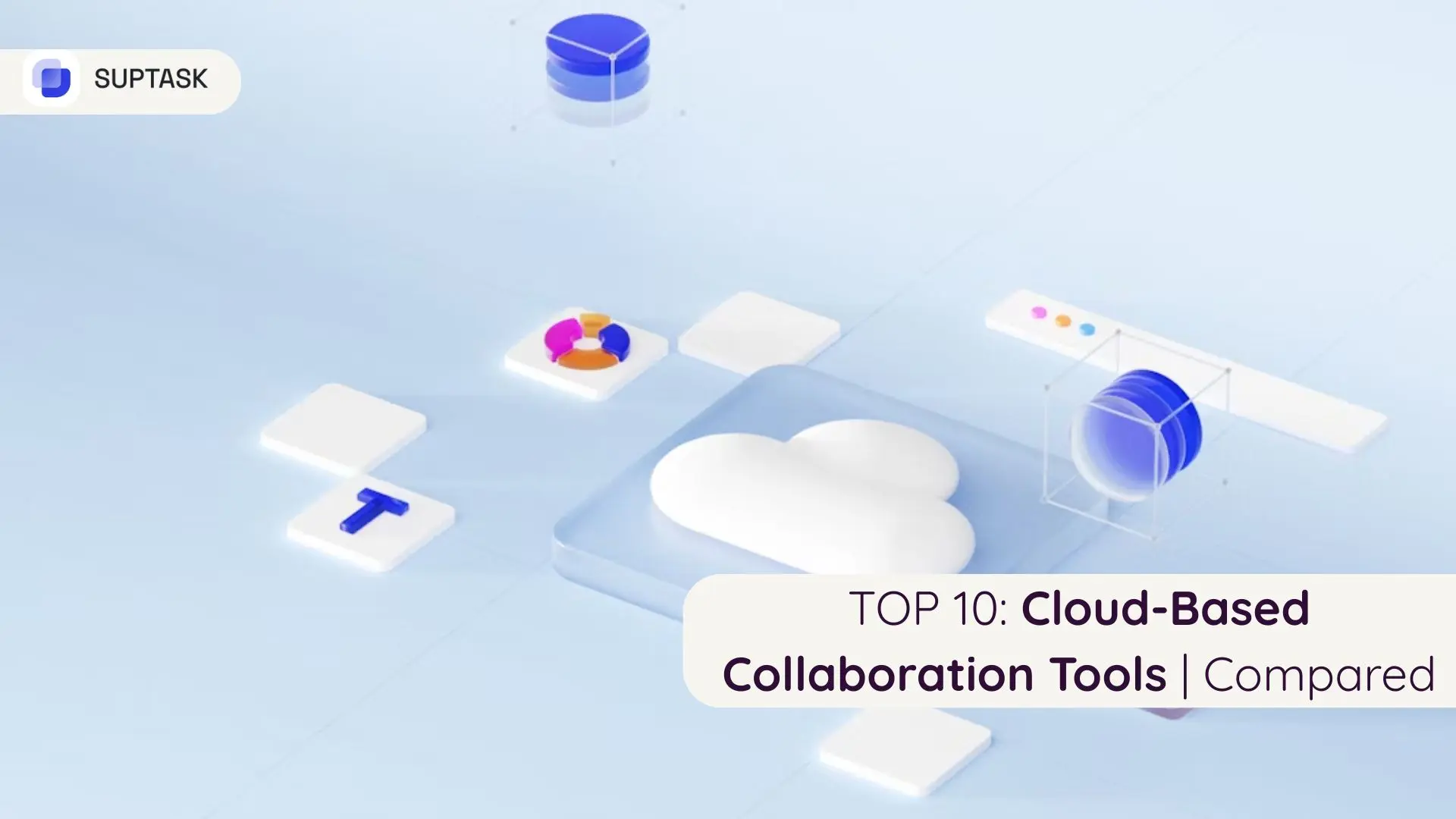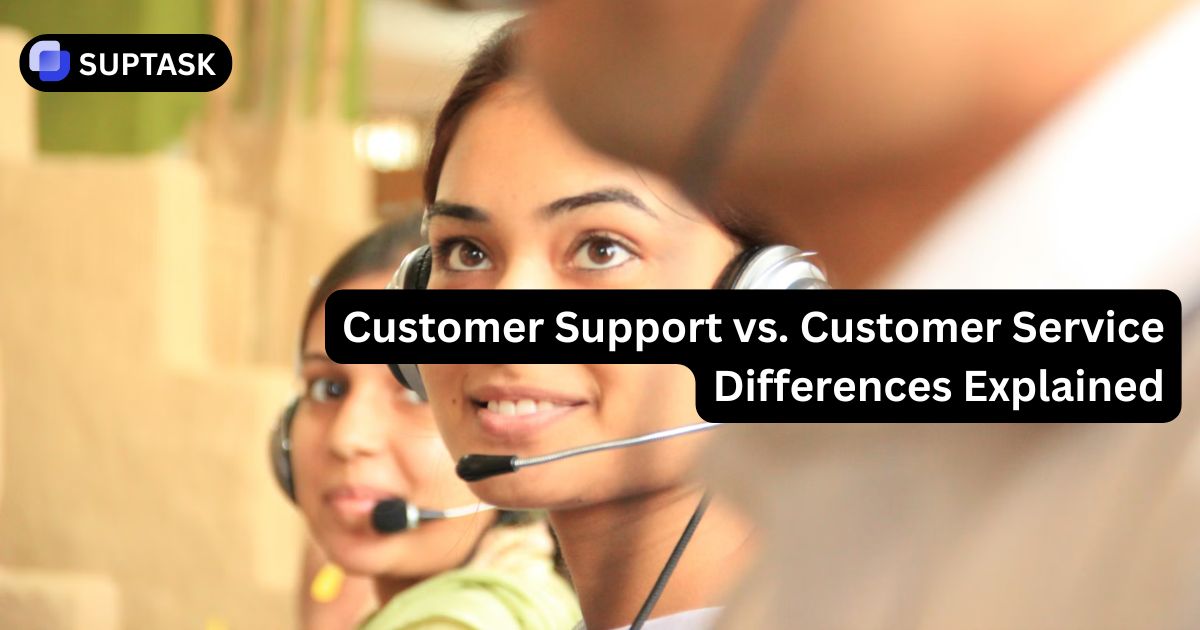If you are working with a small startup team or coordinating projects through a large enterprise, picking the best collaboration platform can be a game-changer for your team's ability to work together efficiently.
In this complete comparison, we will examine the top 10 cloud-based collaboration tools that are changing in 2025.
What is Cloud Collaboration Software?
Cloud collaboration software is a group of platforms that allow remote team members to work together on the same project, document, or task in real time from any location that has internet access. Unlike traditional on-premise collaboration tools, which require local servers and direct device access, cloud solutions provide a single, always-open access with an auto-sync feature for all devices.
Current statistics show that 94% of large corporate clients rely on cloud services. This finding indicates that almost all organizations have embraced cloud-based solutions not only for collaboration but also for other business functions. The widespread use of cloud-based software signifies that businesses have realized that these tools are neither optional nor just a convenience, rather a necessity for their daily operations in this digital age.'
The Best Cloud Collaboration Tools Compared
Top Cloud Collaboration Software Solutions for 2025
1. Suptask
Suptask is a collaboration and ticketing system that operates within Slack, eliminating the need for teams to switch between internal and external platforms to manage requests. The user group, comprising IT, HR, and support teams, seeks not only a standardized communication method but also one that is rapid.
- Convert short interactions into tickets using emoji or slash commands
- Private ticketing for security-related issues
- SLA administration and live-tracking
- Threaded collaboration for solving ticket issues
- Data visualization dashboards and email summaries
- Connections: GitHub, GitLab, JIRA, Zendesk
2. Slack
Slack is a revolutionary communication hub that allows team members to organize their discussions in channels and also enables easy integration with over 2,000 tools. It makes it possible a smooth, contextual dialogue among projects and teams.
- Channels, threads, and DMs for an orderly chat environment
- Sound, video, and async messaging support
- App integrations for work centralized in one place
- Robust searching and message history
- Remote and hybrid work setting is compatible
3. Microsoft Teams
Microsoft Teams is a combination of conversation, video, file sharing, and Office tools all packed into one product. It is ideal for businesses already on Microsoft 365 seeking secure and scalable collaboration.
- Extremely smooth integration with Word, Excel, and PowerPoint
- Simultaneous editing and real-time chat with files
- Top-tier security for enterprises and compliance
- Deep synchronization between Outlook, Exchange, and SharePoint
- Can handle enormous organizations
4. ClickUp
ClickUp is the only work management platform that allows team members to visually keep track of tasks, projects, docs, and goals. Due to its adaptability, it can be turned into any business process, from startups to multinationals.
- Task management with tailored statuses and perspectives
- Hierarchical structure: Lists, Folders, Spaces
- Real-time collaboration and mentions
- Performance monitoring and reports
- Workflow automation for repetitive tasks
5. Notion
Notion is a versatile workspace that integrates docs, wikis, and databases. It's perfect for those who want to keep the knowledge in the company and at the same time manage the tasks, all that in one adjustable space.
- Create wikis and SOPs without difficulty
- Databases for tracking projects, contacts, etc.
- Simultaneous editing with version history
- Block-based content (text, tables, embeds)
- Adjustable permissions and public sharing
6. Trello
Trello employs a Kanban board method that assists teams in visualizing and managing their workload. Its easy-to-master and versatile features make it an excellent choice for task tracking and simple project management.
- Boards, lists, and cards for visual planning
- Checklists, due dates, and attachments
- Butler automation for repetitive tasks
- Power-Ups for additional functionality
- Easy team collaboration and onboarding
7. Figma
Figma is a real-time collaborative design tool for UI/UX projects. The designers and the teams are allowed to work simultaneously on the same canvas, which has the effect of rapid prototyping and shorter feedback cycles.
- Simultaneous user interaction in real-time
- Noting information directly on the visual parts of the project
- Prototype creation, along with design handoff capabilities
- Preconfigured and customizable UI elements
- Internet-based for easy access
8. Google Workspace
Google Workspace is designed with Docs, Sheets, Slides, Drive, and Meet and offers real-time collaboration and cloud storage, which is accessible on any device.
- Real-time editing alongside comments/suggestions
- Integrated Gmail and Google Calendar
- Drive allows secure file sharing and permission setting
- Friendly, user-friendly interface
- Eleven is scalable for all team sizes
9. Miro
Miro is a digital whiteboard platform that helps users represent their ideas, typically by highlighting the features of Agile ceremonies and workshops. It visualizes the remote teams to become one, having a view, which is the most creative way of solving the problem and planning.
- Uninterrupted creative space for unstructured or organized work
- Absence of restrictions by having templates used for planning, mapping, and retrospectives
- Seamless connections with Jira, Slack, and other tools
- In-video call chat and discussions
- Live work on boards simultaneously
10. Basecamp
Simple, non-real-time project collaborations are the core of Basecamp. It gathers task lists, messages, schedules, and files into unified project spaces, thereby simplifying the workflow for the teams.
- The message centers and auto check-ins
- The to-do feature and the scheduling tools
- The documents and files are now centralized in the project
- The Rally dial charts for the visual representation of progress
- A minimalist interface for easy adoption






%20Dashboard%20Examples.jpg)






